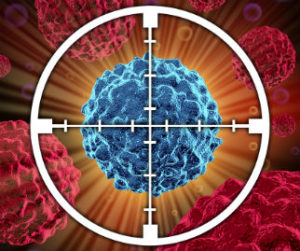 A preliminary analysis suggests that thermal ablation may be effective in selected patients with local small cell lung cancer without adjuvant therapy. The research from Brown University, Providence, USA was published in the Journal of Vascular and Interventional Radiology (JVIR).
A preliminary analysis suggests that thermal ablation may be effective in selected patients with local small cell lung cancer without adjuvant therapy. The research from Brown University, Providence, USA was published in the Journal of Vascular and Interventional Radiology (JVIR).
Aaron WP Maxwell and colleagues, including Damian E Dupuy, from the The Warren Alpert Medical School of Brown University set out to evaluate outcomes in a small cohort of patients with local or disseminated small-cell lung cancer who received percutaneous thermal ablation.
About 12% of lung cancers diagnosed are small cell lung cancer and this type of cancer is usually caused by smoking. Small cell lung cancer often spreads early on and chemotherapy, rather than surgery might be recommended for it.
Percutaneous ablation has become an accepted treatment option for patients with non-small cell lung cancer and published literature has shown it to be both feasible and safe in nonsurgical candidates.
In this study, the investigators retrospectively evaluated 10 biopsy-proven small cell lung cancer tumours in nine consecutive patients. As reported in JVIR, the average tumour sizes were 1.8cm ± 0.5 in patients with local disease and 2.6cm ± 1.2 among patients with disseminated disease. The physicians treated five tumours with microwave ablation and five with radiofrequency. None of the patients received adjuvant therapy following thermal ablation. Median follow-up duration was 16 months (range, 2–48 months).
When Maxwell and colleagues compared median and one-year overall survival for patients in the local and disseminated disease groups, they found that both these measures were better among patients treated for local small cell lung cancer compared with disseminated disease. Further, they found that pneumothorax occurred in five patients (55.6%), and three patients received successful outpatient thoracostomy tube placement. No patients were hospitalised, and there were no major complications.










